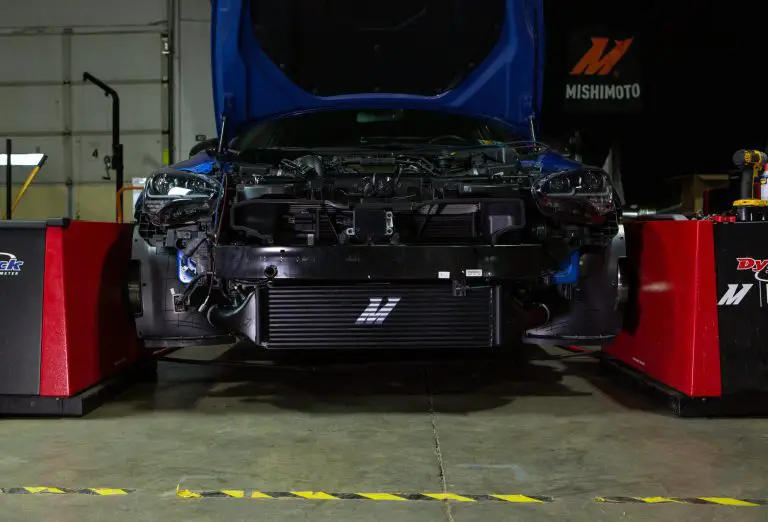How To Know If Your Transmission Band Needs Adjustment?
Transmission bands are crucial components in automatic transmissions that play a significant role in shifting gears smoothly. These bands, also known as clutch bands, are responsible for controlling the engagement and disengagement of various gears. Over time, due to normal wear and tear or improper adjustment, these bands can become loose or too tight, resulting in transmission issues.
In this blog post, we will explore the symptoms that may indicate the need for transmission band adjustment. By understanding these symptoms, you can identify potential band adjustment issues and take appropriate action to ensure the proper functioning of your vehicle’s transmission.
Whether you’re a car enthusiast or a regular driver, knowing the signs of transmission band problems can help you address them promptly and avoid more extensive transmission damage. Join us as we delve into the common symptoms that may indicate the need for transmission band adjustment and discover the importance of keeping these critical components in optimal condition for a smooth and reliable driving experience.
What Are The Transmission Band Adjustment Symptoms?
Symptoms of transmission band adjustment issues can vary depending on whether the bands are too loose or too tight. Here are some common signs that may indicate a need for transmission band adjustment:
1. Slipping Gears
One of the primary symptoms is when the transmission slips out of gear or struggles to stay engaged. You may experience a loss of power or notice the engine revving higher than usual without a corresponding increase in speed.
2. Harsh Shifting
Improperly adjusted bands can cause the transmission to shift abruptly or with a harsh jolt. You may feel a strong impact or hear a clunking noise during gear changes.
3. Delayed Engagement
If the bands are too loose, the transmission may take longer than usual to engage when shifting into drive or reverse. You may experience a delay in acceleration or hesitation when starting from a stop.
4. Inconsistent Shift Points
A band adjustment problem can result in inconsistent or erratic shift points. The transmission may shift at inappropriate RPMs or struggle to find the right gear, leading to a jerky or uneven driving experience.
5. Overheating Transmission
When bands are too tight, excessive friction can generate heat in the transmission. This can cause the transmission fluid to overheat, leading to fluid degradation, poor lubrication, and potential damage to internal components.
6. Burnt Smell or Fluid Discoloration
If the transmission bands are improperly adjusted and causing excessive friction, it can result in a burnt smell emanating from the transmission or a noticeable darkening or discoloration of the transmission fluid.
How To Detect Whether The Transmission Band Needs Adjustments Or Not?
Detecting whether the transmission band requires adjustment can be done through several methods. Here’s how you can determine if your transmission bands need adjustments:
1. Check the Service History
Review the service history of your vehicle to see if the transmission bands have been adjusted as part of routine maintenance. If there is no record of adjustment, it may be worth considering an inspection.
2. Assess Transmission Behavior
Pay attention to the performance of your vehicle’s transmission. Look for any symptoms such as slipping gears, harsh shifting, delayed engagement, or inconsistent shift points, as mentioned earlier. These signs may indicate an issue with the transmission bands.
3. Inspect Transmission Fluid
Check the condition and level of the transmission fluid. Healthy transmission fluid should be a clear, reddish color and have a slightly sweet smell. If the fluid is dark, burnt, or has a strong odor, it could be a sign of excessive friction caused by improperly adjusted bands.
4. Consult a Professional
If you suspect transmission band adjustment issues based on the symptoms or fluid condition, it’s recommended to consult a qualified mechanic or transmission specialist. They have the knowledge and diagnostic tools to assess the transmission system accurately.
5. Perform a Pressure Test
A transmission pressure test can be conducted by a professional to evaluate the hydraulic pressure within the transmission. Abnormal pressure readings can indicate problems with the bands or other components.
6. Inspect the Bands
A visual inspection of the transmission bands may be necessary. However, this requires expertise and may involve removing parts of the transmission. It’s typically best to leave this inspection to a professional technician.
What To Do When You Detect Your Transmission Band Needs Adjustment?
When you detect that your transmission band needs adjustment, it’s important to take the appropriate steps to address the issue. Here’s what you should do:
1. Consult a Professional
It’s recommended to consult a qualified mechanic or transmission specialist who has experience with transmission repairs and adjustments. They have the expertise and diagnostic tools to accurately assess the condition of the transmission bands and perform the necessary adjustments.
2. Schedule an Inspection
Make an appointment to have your vehicle inspected by the professional. During the inspection, they will evaluate the condition of the transmission bands, check for any other underlying issues, and determine the extent of adjustment required.
3. Follow Recommended Actions
Based on the inspection results, the mechanic will provide recommendations on how to proceed. If the transmission bands are indeed in need of adjustment, they will proceed with the necessary steps to properly adjust them. It may involve removing parts of the transmission, making specific adjustments, and reassembling the transmission.
4. Regular Maintenance
To ensure the longevity and optimal performance of your transmission, it’s important to follow the manufacturer’s recommended maintenance schedule. Regularly scheduled maintenance can include band adjustments as part of routine servicing. Discuss with your mechanic the frequency of band adjustments specific to your vehicle.
5. Monitor Performance
After the adjustment, monitor the performance of your vehicle’s transmission. Ensure that the symptoms you initially detected, such as slipping gears or harsh shifting, have been resolved. If you notice any recurring issues or new problems, consult your mechanic for further inspection and necessary adjustments.
Is It Expensive To Replace Transmission Bands?
The cost of replacing transmission bands can vary depending on several factors, including the make and model of your vehicle, the extent of the repair required, and where you get the work done.
In general, replacing transmission bands is not a simple task and typically requires removing the transmission from the vehicle to access and replace the bands. This can involve a significant amount of labor and time.
The cost of the replacement bands themselves can vary as well, depending on the type and quality of the bands required for your specific transmission.
To get an accurate estimate of the cost, it’s best to consult with a professional mechanic or transmission specialist. They can evaluate your vehicle, diagnose the extent of the band replacement needed, and provide you with a detailed cost breakdown that includes both labor and parts.
It’s important to keep in mind that transmission repairs, including band replacements, can be relatively expensive due to the complexity of the task. However, it’s a crucial investment to ensure the proper functioning and longevity of your vehicle’s transmission.
Frequently Asked Questions
Q: What are the symptoms of transmission band adjustment issues?
A: The symptoms of transmission band adjustment issues can include slipping gears, harsh shifting, delayed engagement, inconsistent shift points, overheating transmission, and burnt smell or discolored fluid. These symptoms may indicate that the transmission bands are either too loose or too tight and require adjustment.
Q: How can I be sure that my transmission bands need adjustment?
A: While the symptoms mentioned above can suggest the need for transmission band adjustment, it’s essential to have a professional inspection. A qualified mechanic or transmission specialist can assess the condition of the transmission bands, perform diagnostic tests, and determine if adjustment is necessary.
Q: Can I adjust the transmission bands myself?
A: Adjusting transmission bands is a complex task that requires specific knowledge, skills, and specialized tools. It’s generally not recommended for inexperienced individuals to attempt this adjustment themselves. It’s best to leave it to professionals who have the expertise and experience in working with transmissions.
Q: How often should transmission bands be adjusted?
A: The frequency of transmission band adjustment can vary depending on the specific vehicle, driving conditions, and manufacturer recommendations. In some cases, adjustment may be required during regular maintenance intervals, while in others, it may be necessary only if symptoms arise. Consult your vehicle’s service manual or a qualified mechanic for the recommended maintenance schedule specific to your vehicle.
Q: What should I do if I suspect transmission band adjustment issues?
A: If you suspect transmission band adjustment issues based on the symptoms mentioned earlier, it’s best to have your vehicle inspected by a professional. They can diagnose the problem, determine if adjustment is necessary, and perform the adjustment if required. Promptly addressing transmission band adjustment issues can prevent further damage and ensure smooth and reliable transmission operation.
Q: Are transmission band adjustments expensive?
A: The cost of transmission band adjustments can vary depending on factors such as the make and model of your vehicle, the extent of the adjustment required, and where you have the work done. While it may involve a significant amount of labor and time, the cost of the adjustment itself is generally less expensive than replacing the entire transmission. It’s best to consult with a professional mechanic or transmission specialist to get an accurate estimate of the cost based on your specific vehicle and circumstances.


